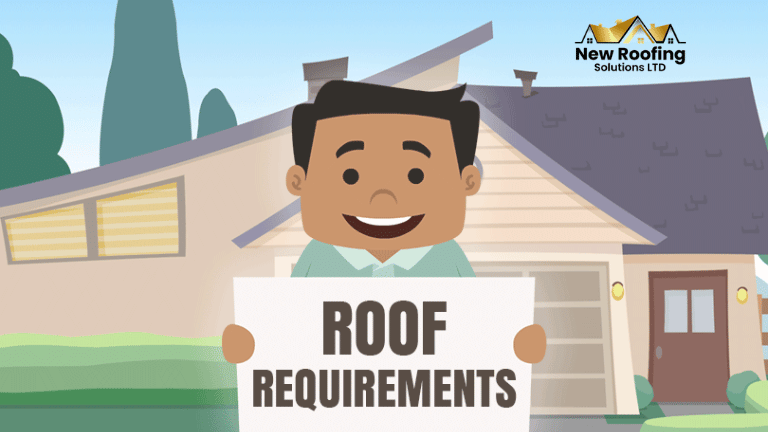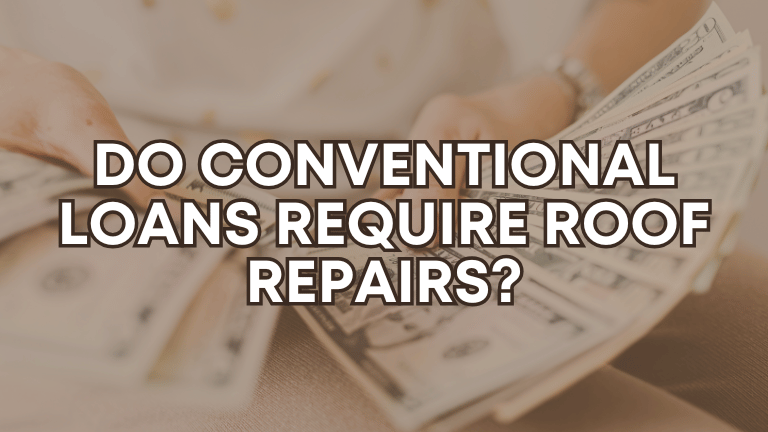Do Conventional Loans Require Roof Repairs?
Do Conventional Loans Require Roof Repairs? one common concern is whether the roof needs to be repaired or replaced to meet the loan’s requirements. For many prospective homeowners, this question arises as they assess the condition of the property they intend to purchase. In this article, we’ll explore whether conventional loans require roof repairs and what you need to know before closing on a house.
What Is a Conventional Loan?
Before diving into roof repairs, it’s important to understand what a conventional loan is. A conventional loan is a type of mortgage that is not insured or guaranteed by the federal government (unlike FHA, VA, or USDA loans). These loans are offered by private lenders like banks, credit unions, or mortgage companies and usually have stricter eligibility criteria.
Conventional Loan Requirements
To qualify for a conventional loan, you must meet specific requirements, including:
- A credit score of at least 620 (though higher scores are preferred)
- A down payment typically between 3% to 20% of the home’s purchase price
- A debt-to-income ratio of around 43% or lower
- Proof of stable income and employment
But what about property condition? Let’s take a closer look at how a conventional loan may affect roof repairs.
Does a Conventional Loan Require Roof Repairs?
In short, conventional loans do not explicitly require roof repairs. However, the condition of the roof and other structural aspects of the property can influence whether you can secure financing.
Lenders, including those providing conventional loans, want to ensure that the home you are purchasing is habitable, safe, and will not pose financial risks in the near future. This is why a home appraisal and inspection are part of the mortgage process. If the roof or other major systems of the home are found to be in poor condition, it may lead to issues with your loan approval.

The Home Appraisal Process
One key aspect of getting approved for a conventional loan is the home appraisal. An appraisal is conducted by a professional who assesses the value of the property. During this process, the appraiser will evaluate the overall condition of the home, including the roof, foundation, plumbing, and electrical systems. While the appraiser does not conduct a full inspection, they will report any major issues that may affect the value or safety of the home.
If the appraiser notes that the roof is in poor condition, this could lead to concerns about the property’s overall value or habitability. In such cases, lenders may require the seller to make repairs or for the buyer to negotiate repairs before moving forward with the loan.
What Happens if the Roof Needs Repair?
If the roof is found to be damaged or deteriorated during the appraisal or inspection, it can delay the closing process. Here are a few possible scenarios:
1. Seller Pays for Repairs
In some cases, the seller may agree to cover the cost of roof repairs before closing. This is more likely if the seller is motivated to close the sale quickly. The repairs may be required by the lender to ensure that the home meets certain minimum property standards.
2. Buyer Pays for Repairs
Alternatively, the buyer may be asked to cover the cost of the roof repairs. This can be done before or after the closing, depending on the negotiation. The lender may also approve an escrow account, where the cost of repairs is held until the work is completed.
3. Renegotiating the Sale Price
If the roof repair costs are substantial, the buyer and seller may agree to adjust the sale price of the home. The buyer could request a price reduction that reflects the cost of the roof repairs, or the seller could agree to a credit at closing to help cover the expense.
4. Loan Denial
In extreme cases, if the roof is in very poor condition and the lender deems the property uninhabitable, it may result in a loan denial. If the roof is severely damaged and repairs are too costly, the lender may decide that the property does not meet their requirements, making the home ineligible for a conventional loan.
Roof Repairs and FHA vs. Conventional Loans
While conventional loans may not always require roof repairs, FHA loans (loans backed by the Federal Housing Administration) may have stricter requirements when it comes to property condition. FHA loans typically require that a home meet minimum property standards to ensure it is safe and livable. This could mean that a roof in need of repair would delay an FHA loan approval.
On the other hand, conventional loans are somewhat more flexible in their appraisal requirements. Still, they generally expect that the home be in a reasonably good condition, as this impacts the home’s value and your ability to repay the loan.
Why Is the Roof Important for Lenders?
Lenders are concerned with the condition of the roof because it directly affects the livability of the home. A damaged roof can lead to water damage, mold, or structural issues, which can be costly to repair. Additionally, a deteriorated roof could decrease the home’s value or make it less appealing to potential buyers in the future. For these reasons, lenders want to ensure that the roof is in adequate condition before approving the loan.
Should You Get the Roof Inspected Before Applying for a Conventional Loan?
If you are considering buying a home and are concerned about the roof’s condition, it may be wise to have a roof inspection before applying for a conventional loan. A preemptive inspection will give you a clear understanding of the roof’s current state and allow you to address any issues before the appraisal.
If the roof needs significant repairs, you can either negotiate with the seller or plan for repairs after closing. Having this information in advance can help prevent surprises during the loan approval process.

